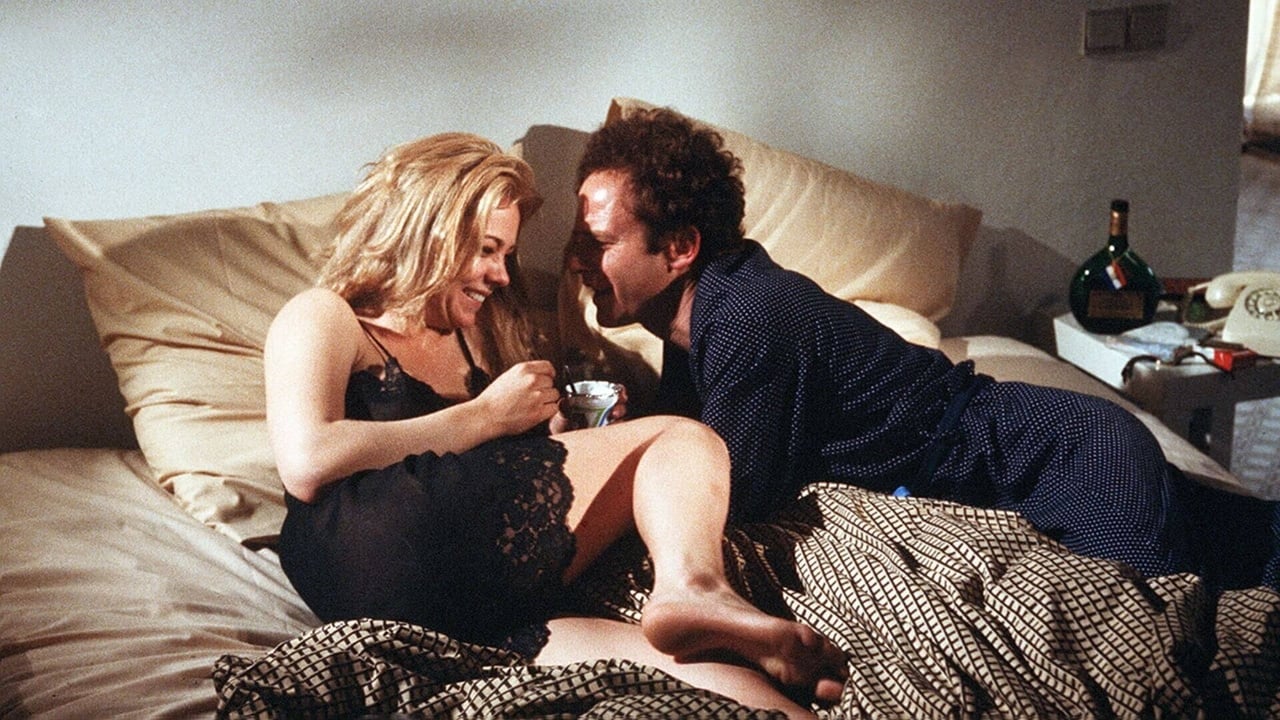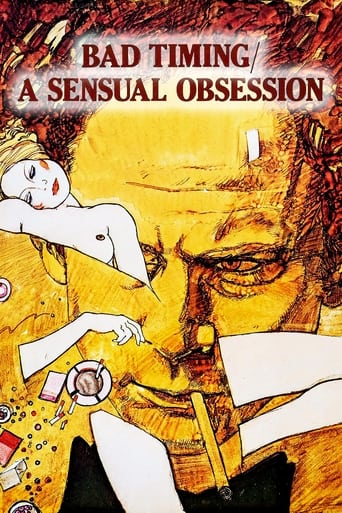

A bit overrated, but still an amazing film
... View MoreThe performances transcend the film's tropes, grounding it in characters that feel more complete than this subgenre often produces.
... View MoreWhile it is a pity that the story wasn't told with more visual finesse, this is trivial compared to our real-world problems. It takes a good movie to put that into perspective.
... View MoreThe film may be flawed, but its message is not.
... View MoreI saw this originally sometime in the mid eighties and thought it was good. Now I appreciate it as a modern great. It doesn't date at all despite Garfunkle's hair and suits. Roeg tells a fairly simple story about complex emotions effecting complicated people and is well served by it's main protagonists and the actors he tasked to play them. The film is well paced and shown in non-linear interludes holding the viewer suspended, picking sides in a relationship and wondering about the consequences which are not fully revealed until the end. The style is typical of the director but that is no bad thing and if you want your cinema provocative and intelligently emotional this is a film you will want to see.
... View MoreI've just returned after seeing this movie and it has messed your dude up. This was my life for the two years I spent with my Milena. The parallels are uncanny. I am kind of nerdy just like Garfunkel...same pathetic physique...but like Garfunkel I have a certain magnetism. Garfunkel's not exactly a wimp...there's some steel in his gaze. My Milena was just as magnetic and beautiful as Theresa Russell...really. My Milena also lived in a sordid, messy, sexy aerie with a big bed, overfull ashtrays, half-read books everywhere. The alcohol? Check. The infidelity? Check. The suicide attempts? Check. The much older other man? Check. The sleazy, disgusting party friends? Check. The late-night drunk calls that may or may not have been suicide attempts? Check. The intense sex that regularly turned into something twisted? Check. Just like Garfunkel I was hooked...just like Garfunkel I had a "together" life...my God, I even study psychoanalysis...and just like Garfunkel there was more than a hint of bad faith in the togetherness I opposed to my Milena's sloppiness. Like Garfunkel, the idea that Milena had other lovers made me crazy...like Theresa Russell, my Milena needed secrets...lies...she couldn't breathe without her lies and secrets.The scene where she sets Garfunkel up with her fake suicide attempt only to loose the full force of her hysterical cruelty on him...check...down to the blows and the broken bottles...and it marked the moment our love died, even if things dribbled on for a while after that. Anyway...you get the picture. You know a movie is good when it shows you things about YOUR OWN life that you hadn't noticed before. That's the secret of a great movie: you feel like it's talking to you and to you alone. I have a feeling I'm not the only person who walked out of the cinema feeling like he had just seen his own life on the screen. Almost everything is perfect. This film is even more disturbing than DON'T LOOK NOW. That is saying a lot. The one wrong note for me was Harvey Keitel. I liked the contrast of his healthy virility with Garfunkel's nerdiness...but Keitel got something wrong. Not sure what...it was certainly a tricky role, and he wasn't exactly bad, but something was wrong.
... View MoreWithout being a masterpiece this is a surprisingly good film in its genre, and one of the first taking into account that it was made in 1980 and it may be considered one of the fist erotic thrillers. The story of an attempted suicide of a woman (Theresa Russell) and the following investigation where his boyfriend (Art Garfunkel) faces the suspicion of an obsessed detective (Harvey Keitel) is set in a Vienna filmed with taste and style and told in a non-chronological manner that builds the story in an a series of interleaved present and flashback scenes. The best parts of the movie are these where the actors are left to rather freely build the relationship of lust and mis-communication between Russell and Garfunkel, and the suspicion mind-game between Garfunkel and Keitel. Less convincing is the plot itself, it looks like after setting the story and putting the characters in motion the director and script writer did not really know how to end it at the level of interest they succeeded to build. Garfunkel itself in the middle of the story looks a little uncertain, this is by far his most important role on screen but his lack of confidence fits well a character who is supposed to look like he cannot make his mind in a relationship. Although this film came a little too early it set the rules and establish the ground for a niche genre that has developed a few years after it, and despite the aging of some gadgets and equipment and the intense smoking that looks now so outdated :-) by its characters it does not look too tired or rusty, quite the opposite. Actually if I am to compare it with Basic Instinct (certainly with the second one, but maybe also with the first) Bad Timing is a better movie.
... View MoreBritish drama from director Nicolas Roeg, an enigmatic filmmaker who prides himself on turning out jigsaw-puzzle movies intended for specialty audiences. Those who aren't especially impressed with Roeg's technique may say that his films are constructed in the editing process, not before or during the film's production, and that this leaves his pictures feeling empty or choppy (but always artistically choppy!). The plot of "Bad Timing" has something to do with flirtatious, troubled Theresa Russell and her relationship with an odd young psychiatrist. Ugly to look at, aloof and tiresome; the film did get some sterling notices in 1980, but most curious viewers will be satisfied after an hour. *1/2 from ****
... View More